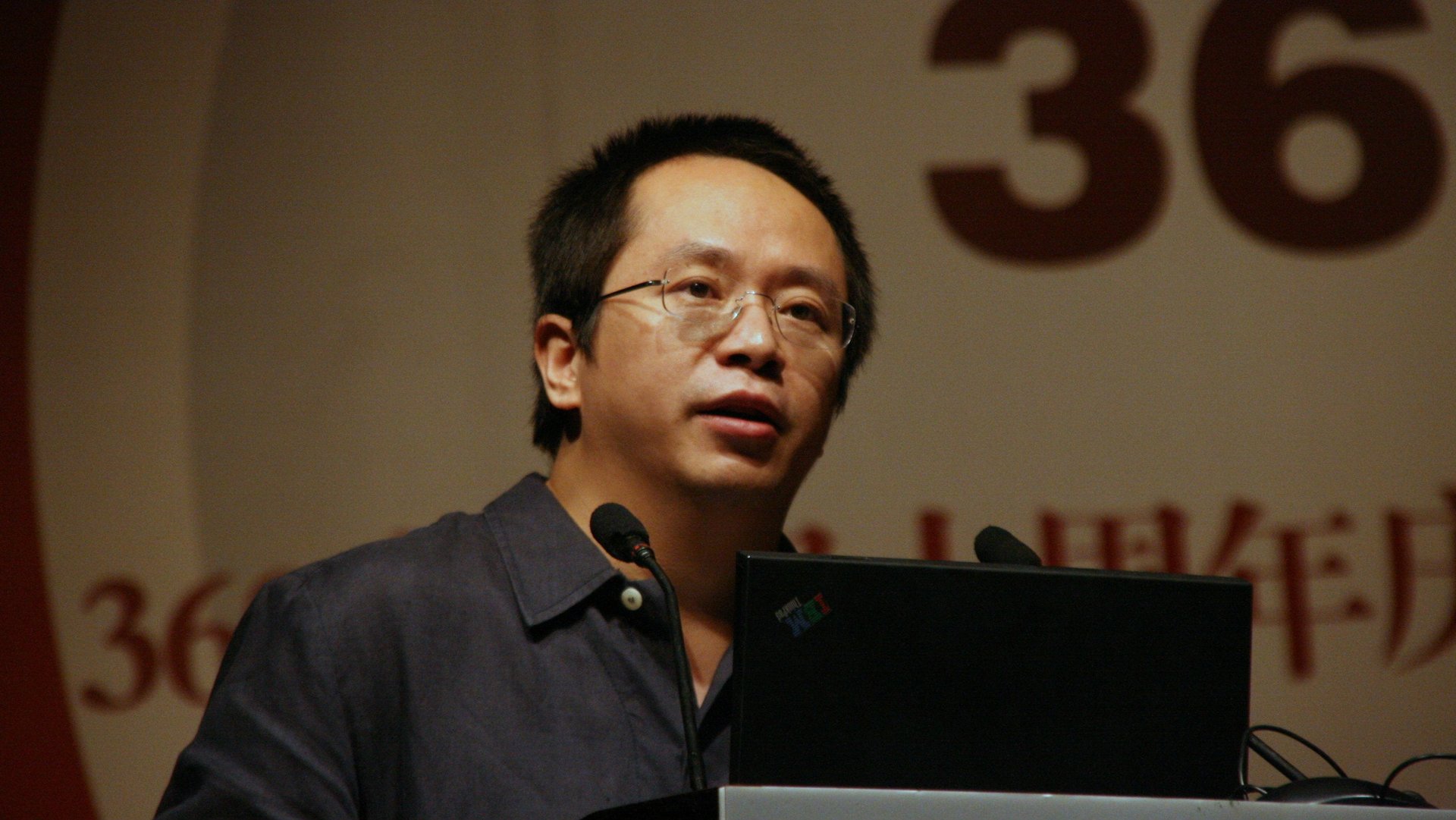One of China’s original internet giants is spending $9 billion to get off the NYSE—and head back to China
The founder and CEO Qihoo 360, a Beijing-based internet company best known for its anti-virus software, is leading a $9 billion buyout offer that will take the publicly listed firm private.


The founder and CEO Qihoo 360, a Beijing-based internet company best known for its anti-virus software, is leading a $9 billion buyout offer that will take the publicly listed firm private.
Qihoo 360 didn’t reveal the cause for the offer in its public announcement. But Zhou’s decision to go private appears to be a prelude to re-listing in China, where the government is leading a drive to encourage investment on domestic stock exchanges.
“Many of us feel that Qihoo 360’s $8 billion market cap doesn’t represent the value of the company,” Zhou wrote in an internal letter that has circulated in domestic media (link in Chinese).
“Privatization is a decision we’ve come to after carefully considering the differences between capital markets in China and abroad, and [privatization] is the first step to accelerating the upgrade of all our businesses and expanding space for their growth,” the letter adds.
Foreign firms might de-list from a US exchange—in this case the New York Stock Exchange—for failure to meet basic compliance standards, or if a company’s performance isn’t up to snuff. It’s not immediately obvious if these cases apply to Qihoo, though its stock price hasn’t recovered from a drop last year.
Many US-listed Chinese companies are undervalued, said TH Capital analyst Tian X. Hou in a Bloomberg report, adding that the cash offer is a good deal for Qihoo shareholders and stands out because of its scale.
Qihoo remains one of China’s most important internet companies, not only for its scope but for its strategy. The company rose to prominence with a free-to-use anti-virus program for desktop PCs. While it fashions itself as a pioneer of the freemium model, many accused it of installing itself and other software onto computers, as part of a reckless drive to acquire users by any means.
Its strategies have worked, to an extent. Qihoo launched a search engine in 2012, which, despite drawing criticism, ultimately earned 30% of China’s total search market. It also has a widely used mobile app store, and has begun to invest in smartphones and other hardware.
Amid a growing number of privatization offers for US-listed Chinese firms, Zhou’s $8 billion buyout proposal marks the biggest yet. Homeinns, a chain of budget hotels in China, received a privatization offer for $1 billion last Thursday. Renren, a company once known as China’s answer to Facebook, also received a takeover bid led by one of its board members.
In the case of Qihoo, a consortium including Citic Securities is offering $51.33 in cash per Class A and Class B ordinary shares, and $77 in cash per American depository share. The latter figure marks a 16.6% premium on the firm’s closing price on Tuesday.
Some have argued that Chinese firms that went public in the states would do well to list back home, where investors are more familiar with their business models. One Chinese analyst gave Barron’s an estimate that would value the company at $60 billion in China—far above its $9 billion cap in the US.